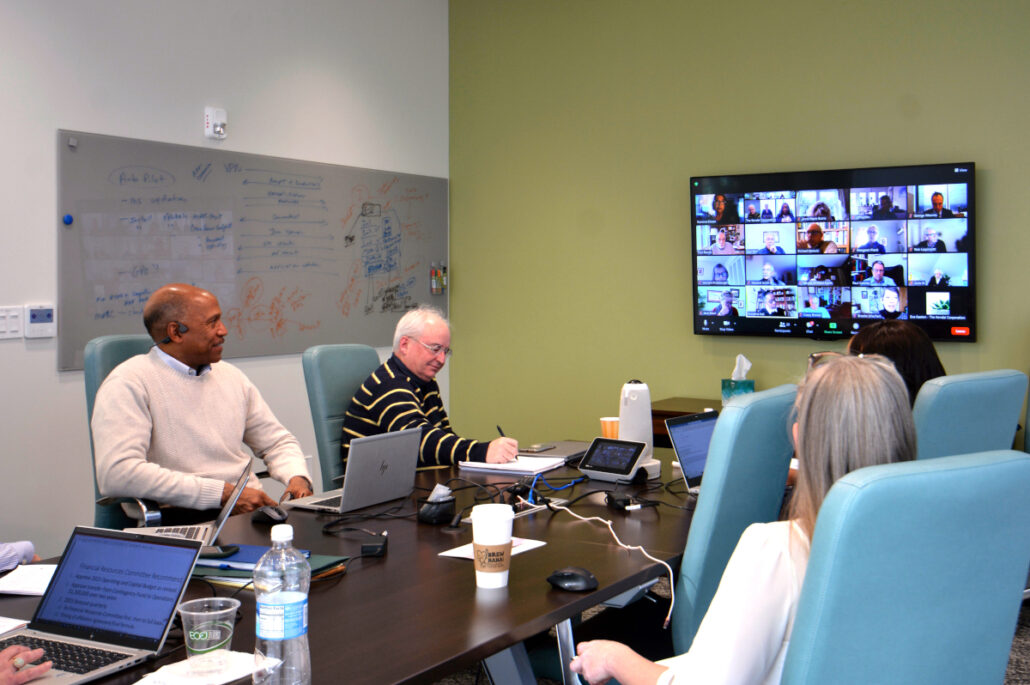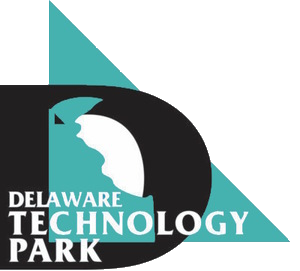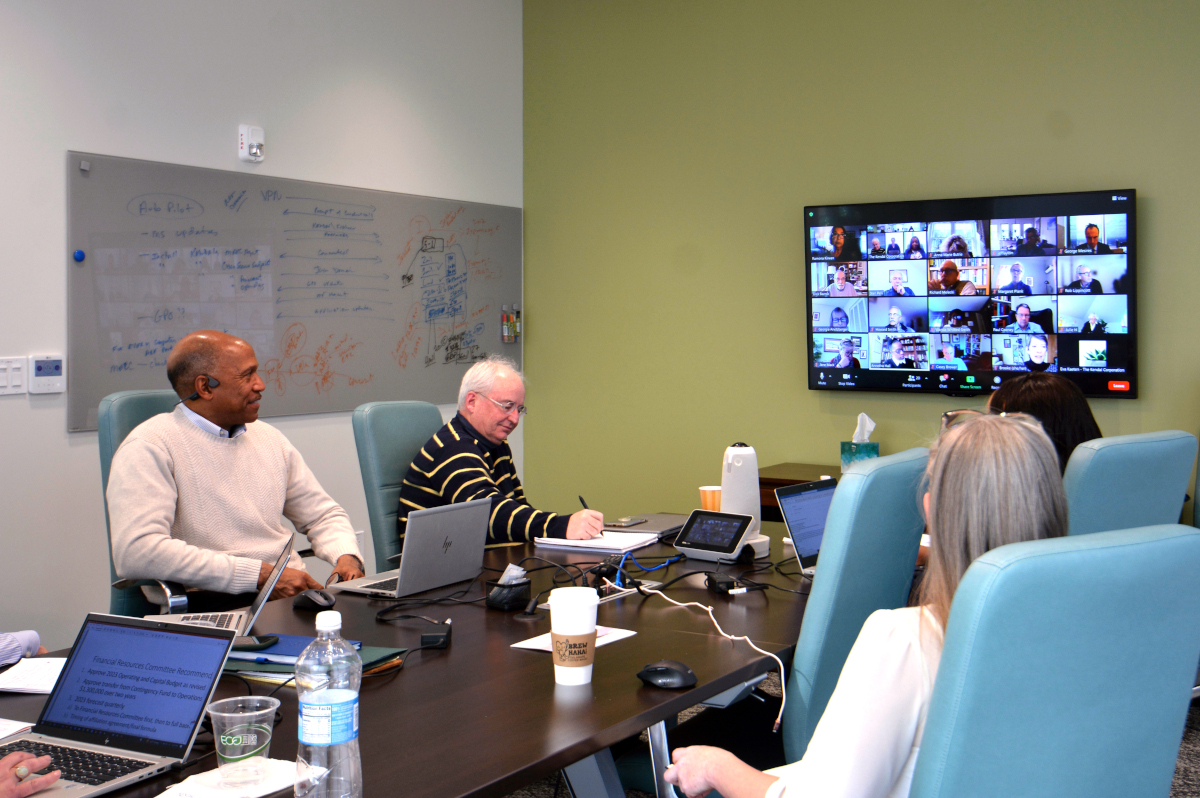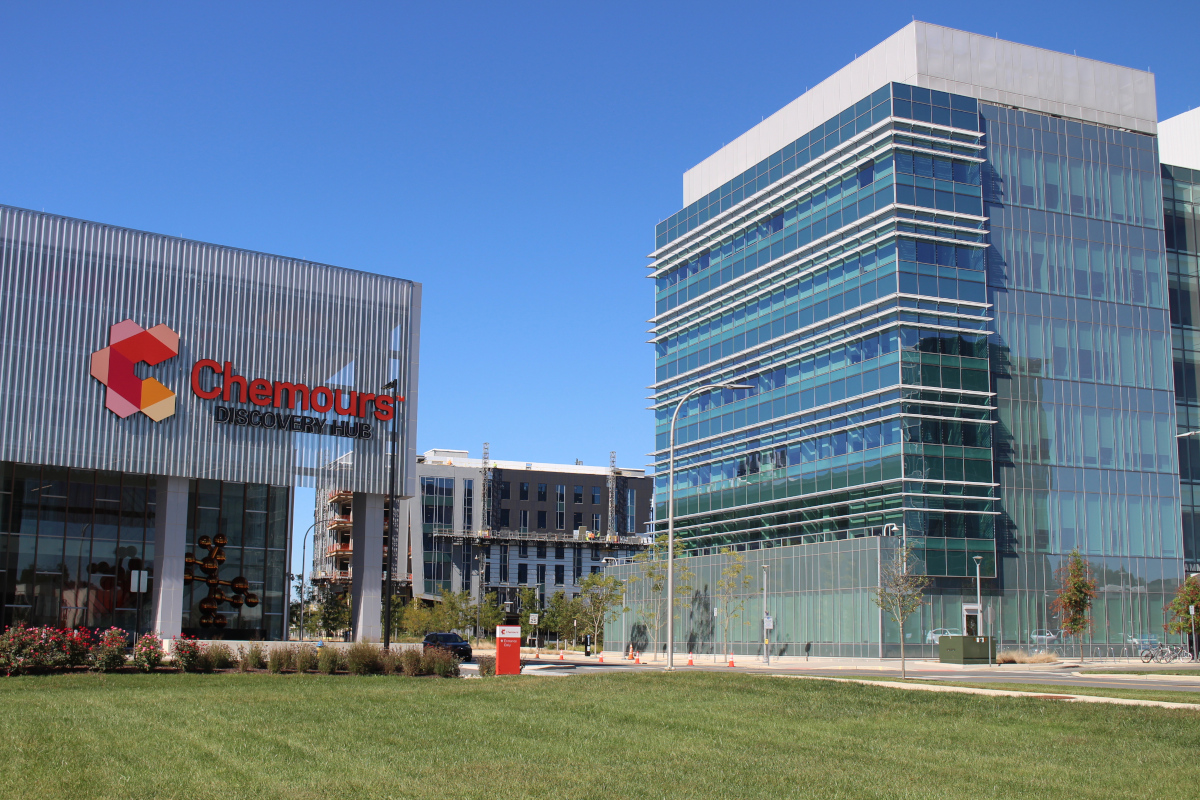NEWARK – Now headquartered on the University of Delaware’s STAR Campus, Kendal Corp., a national support organization for a network of senior living centers, is seeking to bring its expertise and partnerships to the First State.
The 50-year-old, Quaker-founded organization signed a 3,000-square-foot lease in the new FinTech Innovation Hub, moving about 35 central administration staff from Kennett Square, Pa. It plans to add six or seven additional workers in Newark this year, helping to push innovative approaches to serving those late in life.

Steve Bailey | PHOTO COURTESY OF KENDAL CORP
“Innovation and senior living don’t always go together, but we’re figuring that out. And that is really the intent to move down to UD,” said Steve Bailey, chief strategy officer for Kendal.
Kendal has a network of 12 communities in nine states, focusing primarily in the Mid-Atlantic and in New England, all of which are independently owned and operated. They pay annual fees to the central organization, which provides central services, consultation and innovation that benefits the members and residents.
The organization began after a group of Quakers from the Philadelphia and Wilmington areas grew older and recognized that none of the existing living situations fit their desires for an independent and engaging experience. In 1973, they founded what is today known as Kendal-Crosslands Communities, located near Longwood Gardens.
The need for innovative approaches to senior living could not be more urgent. About 10,000 Americans turn 65 every day, a trend that will continue until 2030, according to the U.S. Census Bureau. Meanwhile, the workforce to support that growth has not yet materialized and has been further hurt by the pandemic. A recent American Health Care Association and National Center for Assisted Living survey found that nearly every nursing home and assisted living community is currently facing a workforce crisis, while federal data shows 380,000 nursing home workers have left during the pandemic.
In coming to UD’s campus, Kendal is partnering with a research university where it has long worked with the Osher Lifelong Learning Institute.
“I would say every Kendal community has strong links to a local university,” Bailey said, noting those include artists in residence programs, mentorships, teaching opportunities, internships, research, and more. “That’s really what we hope to work on with the University Delaware once we get settled.”
Around the country, Kendal is experimenting with robotics and voice assistants as a way to help bridge the workforce gap, but its innovation can be subtler as well.
At its new California community set to open this year, it’s building a 210-vehicle “car barn,” where residents could store a vehicle.
“It’s a racking system where you would drive up a vehicle, press a button and it disappears,” he said noting that the system reduces the structure’s footprint, saving on land costs and reducing impermeable coverage. “That car represents their freedom, and when you move into a community giving up the car keys is not an easy thing to do.”
The Kendal model emphasizes the inclusion of its residents in the work. Bailey noted that the soon-to-open California community “there will be 300 residents who are all technologically savvy, really interested in the environment and have a lot of free time on their hands. So we will encourage them to work on pilot projects of all sorts.”
In Delaware, Bailey and his team have been meeting with UD leaders and faculty to get a sense of where partnerships and projects could materialize. He hopes to help create a Kendal-branded internship and even assist the university in building a senior living programming minor or major degree program to help meet the industry’s needs.
A long-term goal could even see a Kendal community come to Newark, where faculty and students could integrate with senior residents on projects and research on campus, he said. Other universities nationwide have undertaken similar projects, finding success in drawing aging alumni back to campuses and keeping them involved with new generations.
“We’ll start small, but we have some big hopes and dreams,” Bailey added.



 BPG Proposes Mixed-Use Building at STAR Campus
BPG Proposes Mixed-Use Building at STAR Campus